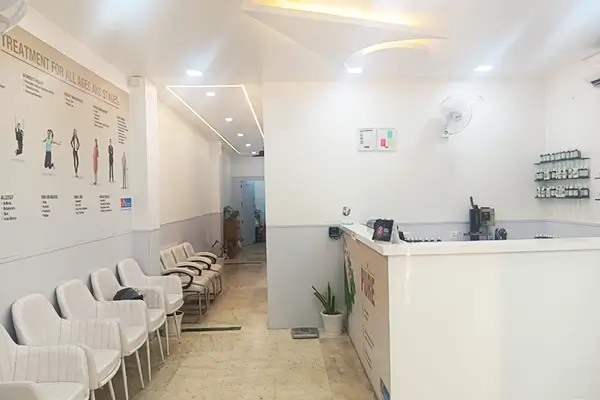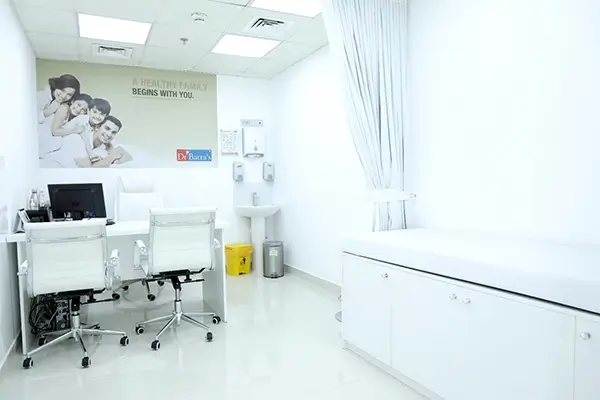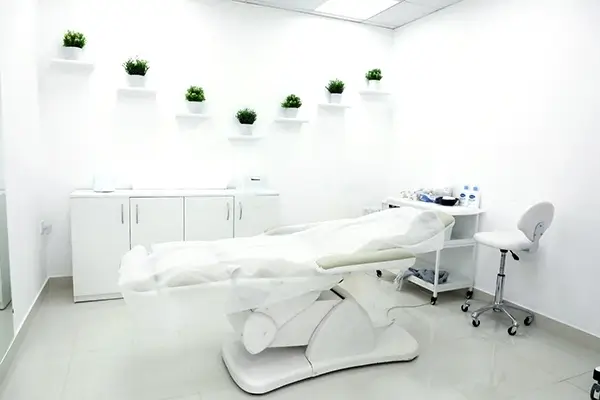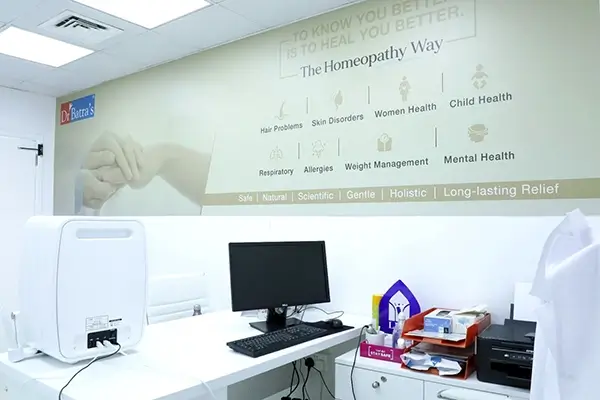Trichotillomania Treatment in Dubai: Effective Homeopathic Solutions
Struggling with hair pulling urges? Trichotillomania is a compulsive condition where individuals feel an uncontrollable urge to pull out their hair, leading to noticeable hair loss and emotional distress. At Dr Batra’s® UAE, we offer homeopathic trichotillomania treatment in Dubai that focuses on managing the psychological triggers, strengthening hair follicles, and promoting overall well-being. Unlike conventional treatments, we do not use chemical-based medications but instead offer a safe, holistic, and personalised solution.
Why Choose Dr Batra’s® for Weight Loss Treatment in Dubai?
Trusted Experts in Homeopathy
With over 40 years of experience, Dr Batra’s® has successfully treated more than 1.5 million cases with hair and scalp conditions using homeopathy.
Personalised Treatment Plans
Every case of trichotillomania is unique. Our doctors create a customised homeopathic treatment plan that targets emotional stress, anxiety, and hair regrowth.
Safe & Natural Alternative
Unlike conventional treatments that may rely on psychiatric medications, homeopathy offers a gentle and side-effect-free solution.
Convenient Locations in Dubai & Abu Dhabi (Use the template shown in the screenshot below)
Our Treatment Process for Trichotillomania at Dr Batra’s® Clinics in UAE
Step 1: In-Depth Consultation
Our doctors assess your medical history, stress triggers, and emotional patterns to understand the root cause of your hair-pulling behaviour.
Step 2: Homeopathic Remedies
We prescribe natural homeopathic treatments that help manage anxiety, control impulses, and improve hair health.
Step 3: Holistic Lifestyle Guidance
Our experts provide counselling, relaxation techniques, and lifestyle modifications to help patients gain control over compulsive urges.
Step 4: Ongoing Progress Monitoring
Regular follow-ups ensure your treatment remains effective, with adjustments made as needed.
What is Trichotillomania?
Trichotillomania - also known as hair-pulling disorder - is a mental health condition where people experience a compulsive urge to pull out their hair, often from the scalp, eyebrows, or eyelashes. This behaviour can lead to visible patchy hair loss, emotional distress, and difficulty in social situations. Just as some people have a tendency to bite their fingernails or pick their skin when stressed, patients of trichotillomania end up pulling their own hair out.
Trichotillomania is classified as a body-focused repetitive behaviour (BFRB) and is often linked to anxiety, stress, or obsessive-compulsive tendencies.
Trichotillomania is believed to be influenced by a combination of genetic, neurological, and psychological factors. If you are facing this problem, an early diagnosis and appropriate treatment can help you manage the condition effectively.
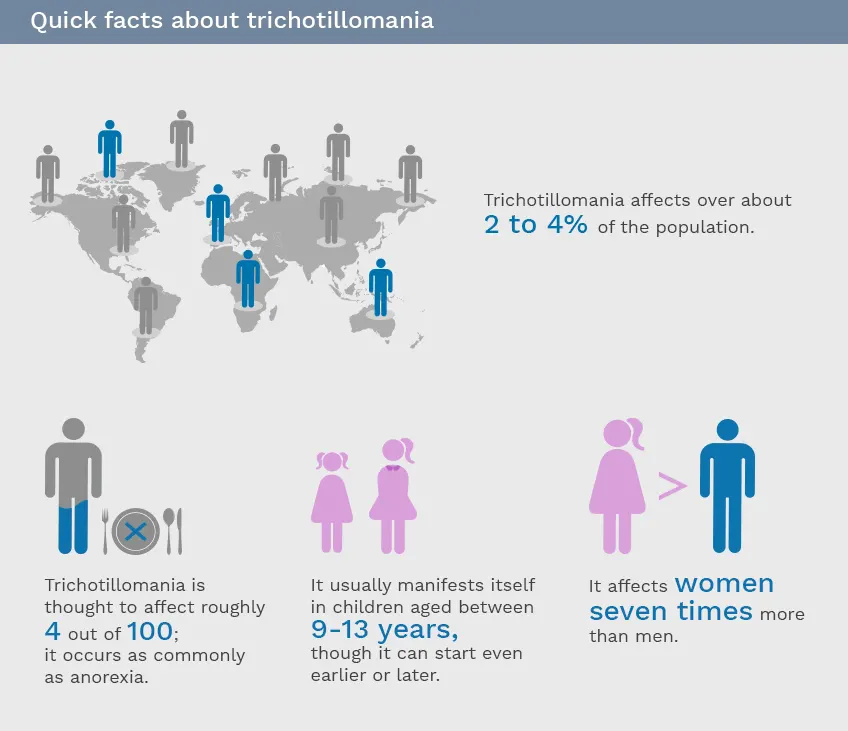
Causes of Trichotillomania
This condition often starts in childhood or adolescence and can persist into adulthood. The most common causes and triggers include:
- Emotional stress & anxiety
- Hormonal imbalances
- Genetic predisposition
- Sensory gratification or habit formation
Homeopathy helps manage the underlying emotional and physiological factors that contribute to trichotillomania without harmful side effects.
Symptoms of Trichotillomania
Trichotillomania presents with both physical and emotional symptoms that can affect daily life. Common signs of the condition include:
- Impulsive hair pulling from the scalp, eyebrows, or eyelashes.
- Tension buildup before pulling hair or when resisting the urge to pull.
- A sense of relief or pleasure after pulling hair.
- Noticeable hair loss leading to thinning or bald patches on the scalp or other areas.
- Biting, chewing, or eating pulled-out hair in some cases.
Early intervention and proper treatment can help manage these symptoms effectively.
Also Read - Best Hair Loss Treatment Dubai
Potential Complications of Trichotillomania
Even though it may not look like a serious condition, trichotillomania can have some seriously negative effects on your life. Some of the complications can be:
- Emotional distress: Feelings of frustration, shame, and embarrassment due to hair loss and lack of control over hair-pulling urges.
- Social and professional difficulties: People may avoid social interactions, school, or work opportunities due to visible hair loss.
- Skin and hair damage: Repeated hair pulling can cause scalp scarring, infections, and permanent damage to your hair follicles, and even lead to long-term hair loss.
- Hairballs (trichobezoars): Ingesting pulled-out hair can result in large, matted hairballs in the digestive tract, leading to weight loss, vomiting, intestinal blockages, or severe complications.
FAQs
Can homeopathy help with trichotillomania?
Yes, homeopathy helps manage stress, anxiety, and impulse control while promoting natural hair regrowth.
Does Dr Batra's® use medications for trichotillomania?
No, our treatment is 100% natural. We do not prescribe psychiatric drugs or chemical-based medications.
How long does it take to see results?
Results vary, but many patients experience improvements in impulse control and hair regrowth within a few months.
Are there any side effects of homeopathic treatment?
No, homeopathic remedies are safe, gentle, and free from side effects.
Can homeopathy be combined with other therapies?
Yes, homeopathy works well alongside counselling and behavioural therapies for enhanced results.
Can hair grow out again after trichotillomania is treated?
Yes. With the right medical treatment, the patient becomes emotionally stable. After the urge to pull out hair is treated, the hair can grow out again.
Can trichotillomania be damaging?
Yes. Apart from the aforementioned psychological factors that cause trichotillomania, this condition can, indeed, be life-threatening. Some patients have been known to pull and eat their hair, leading to intestinal obstruction, which is potentially life-threatening.
Are medicines alone enough to treat trichotillomania?
While homeopathic medicine is the mainstay of our treatment, counselling the patient as well as emotional support from family members are essential.




